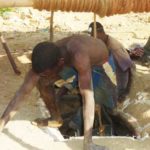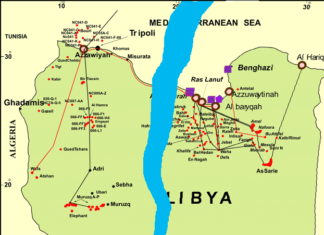Climate Change Adaptation in Developing Countries: U.S. NGOs Must Shift Their Focus
By Erin Wiedenman
Climate Change does not affect all nations equally. It has and will continue to have a greater impact on developing nations. Since the current administration in the U.S. has denied climate change, NGOs and non-profits from the United States must place a greater focus on funding climate change adaptation projects.Urban Refuge: Boston students create an app for refugees in Jordan
By Amy Pollard
Open Urban Refuge and you’ll see a dark purple interface with five mint-green circles. Each circle contains a different symbol, representing one of five categories of aid: education, finance, housing, health, employment.Fighting Poverty in Guatemala: Importance of Public Investment in Education
By Anna Heikkinen
Twenty years have passed since the end of the Guatemalan civil war. The country has managed to take notable steps fostering its economic and human development. However, inequality and poverty still remain at concerning level. Investing in education is what Guatemala urgently needs to raise its people out of poverty and continue the success story of its economy on a sustainable basis.Child Mining in Tanzania: A Forgotten Story
By Tony Spence
Children are often attracted to mining due to a lack of regulation and the promise of easy money. As a result, thousands of children in Tanzania work in difficult and dangerous conditions for little money in which their education, safety and wellbeing is compromised.Six Things to Know About Basic Income and Gender Equity: Lessons From India
By Marion Sharples
While certainly not being a one-stop fix-all solution, the progress that was made under a small-scale, temporary pilot should energise feminist advocates of basic income and serve as an inspiration for future work. The positive impact of basic income on poverty levels, women's self-respect, increased social inclusion and reduced scope for exploitation is greatly inspiring.How Children are Trafficked and Sold into Bonded Labour in India
By Aarthi Gunnupuri
18-year-old Adhir Pasvan from the east Indian state of Bihar, was trafficked and turned into a slave at a shoe manufacturing unit 1200 miles away from home. According to government reports, an astonishing 100,000 children go missing in India every year and many of them are never found.Distant Voices: Design and Development from an Alternative Perspective
By Carl Harrison
For the first time this book asks pertinent questions, about the nature of product in its non-western context, the social, cultural, political and economic reasons why many producers within the developing world appear to be unwilling or unable to forge creative directions of their own.Engineers and Entrepreneurs Hold the Key to Reducing Inequality
By Mark Malloch-Brown
So SDG 10, which almost didn't make it, is now as central to development as the fight against absolute poverty was when I and others drafted the original goals. But if there is wide agreement that inequality now poses a direct threat to the stability and health of societies, there is less agreement about what to do about it.A Few Thoughts on Engineering Peaceful and Inclusive Societies
By Dr. Calestous Juma
The first step in pursuing peace is to enhance human capabilities by expanding engineering education, argues Dr Calestous Juma FRS HonFREng, Professor of Practice of International Development at Harvard Kennedy School and author of ‘Innovation and Its Enemies’.Child Labour in India: The Missing Data & The Informal Economy
By Harris Zargar
Despite various efforts, child labour in India is still a common practice. Poverty forces children to seek jobs in undisclosed service sector and many are forced into prostitution, while many other become victims of human trafficking.
















